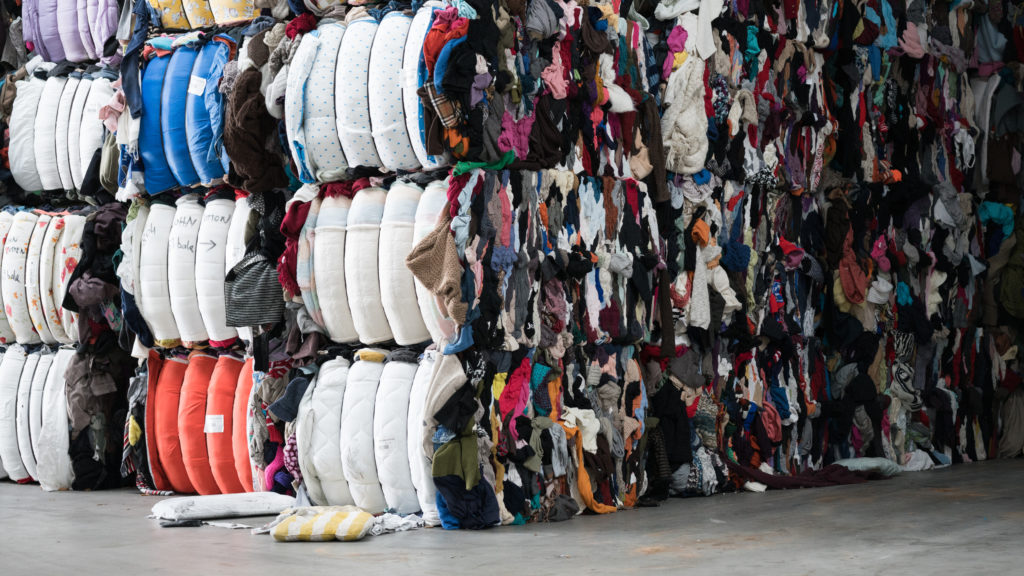Speaking at its annual meeting in London last week, the Association described as a “major achievement” the addition of textiles to the priority materials to be considered for the “end of waste” project under the current revision to Europe's waste framework legislation.
The Association paid tribute to the help of the Bureau of International Recycling for the achievement.
” We almost despair that this needs until 2013 for a decision on second-hand clothing. “
– Ross Bartley, BIR
Under UK law, textiles collected from the doorstep or via charity donations are not classified as waste, but discarded items from charity shops and goods collected from textile banks are classed as waste. Materials legally classified as waste must be handled by licensed operators, under controlled conditions.
An added headache is that without a European-wide definition for which textiles qualify as a waste, recyclers can find it difficult to send material abroad.
Speaking at its annual general meeting, the Textile Recycling Association's national liason manager Alan Wheeler said: “Illegal shipments of all wastes, which are allegedly going for recycling abroad, have been put under the spotlight by competent authorities throughout the EU.
“With the help of our partners at the Bureau of International Recycling, we have succeeded in getting textiles listed as a priority waste stream under article 11 of the revised Waste Framework Directive for consideration as to when goods cease to become waste.
“This is in itself a major achievement, but we must continue to lobby hard to ensure that an agreement is reached on textiles,” Mr Wheeler said.
BIR
Commenting on the difficulties experienced by textiles recyclers, Ross Bartley, environmental and technical director at the Bureau of International Recycling, explained: “The organisation, charity or businesses involved needs to be certain the status of the second-hand clothing is the same in each Member State.
“Otherwise the shipment may be stopped, sent back or the person responsible fined and possibly criminalised if some country's authority deems the second hand clothing “waste” and the shipping paperwork disagrees,” he said.
2013
However, Mr Bartley said that that the expected date when a new definition of textiles may be finalised may be a long way off, perhaps even 2013.
Yet with the environmental authorities now cracking down on illegal shipments of waste, and sentences being strengthened through the forthcoming Directive on the protection of the environment through criminal law, the BIR technical director said the need for legal certainty on the issue was “imperative”.
“We almost despair that this needs until 2013 for a decision on second-hand clothing,” he said.
Directive
The Waste Framework Directive – the 1975 legislation that set the ground rules for waste management in Europe – is being revised jointly by the EU Parliament and Council of Ministers (see letsrecycle.com story).
Textiles is on the list of priority materials that the new Waste Directive would require the EU Commission to re-consider as a “waste” – along with compost, aggregates, paper, glass, metal and tyres.
| Related links: |
It was added to the list of priority materials by Caroline Jackson, the MEP leading the European Parliament's side of the Directive negotiations.
Commenting in January, shortly before she successfully added the amendment to the proposed Directive, Dr Jackson explained: “We're looking at these materials – compost, aggregates, paper, glass, metal, end of life tyres and second hand clothing. Why second hand clothing? Because the recyclers tell us that they have had difficulty exporting it because it is classified as waste.”










Subscribe for free